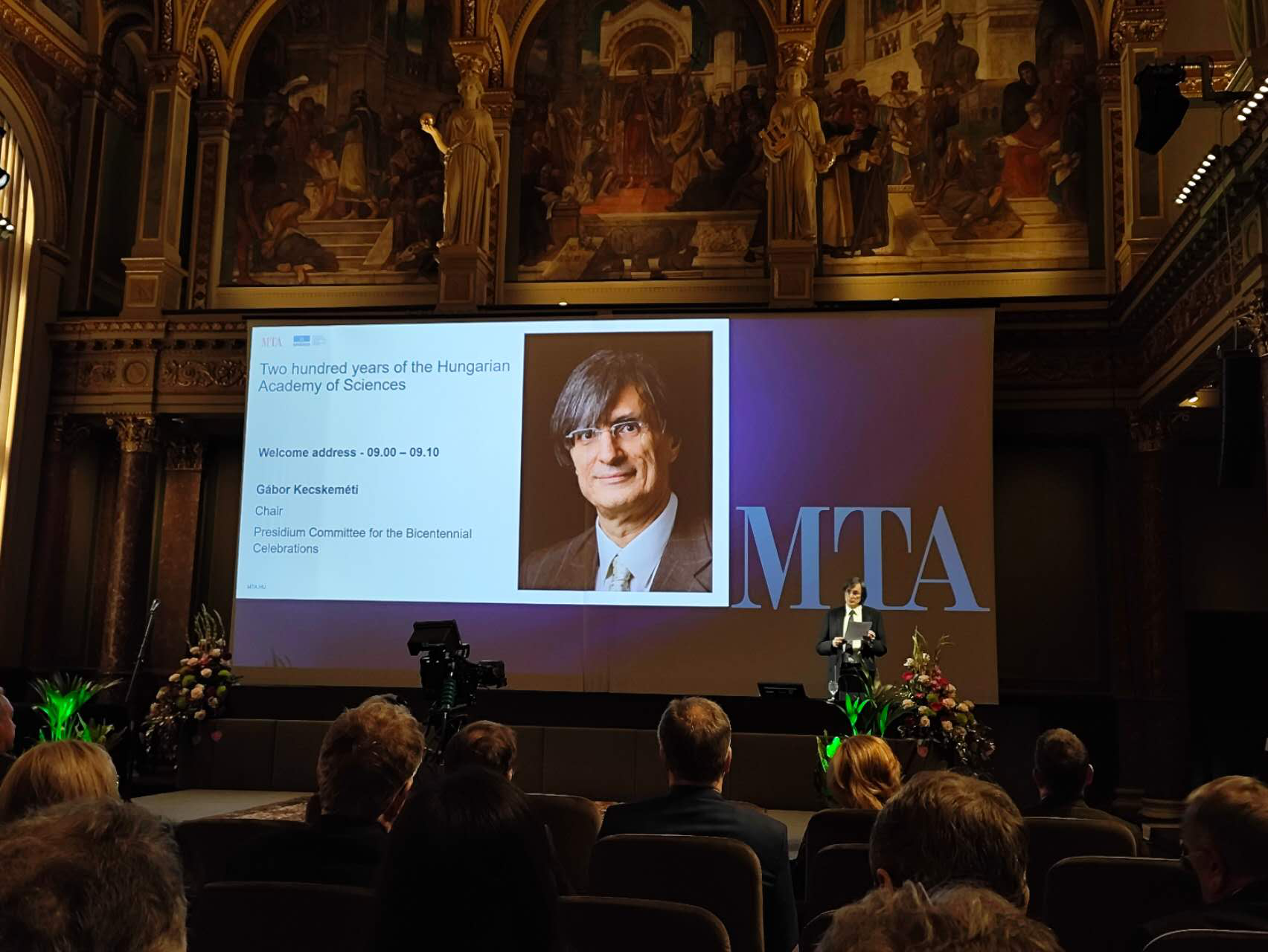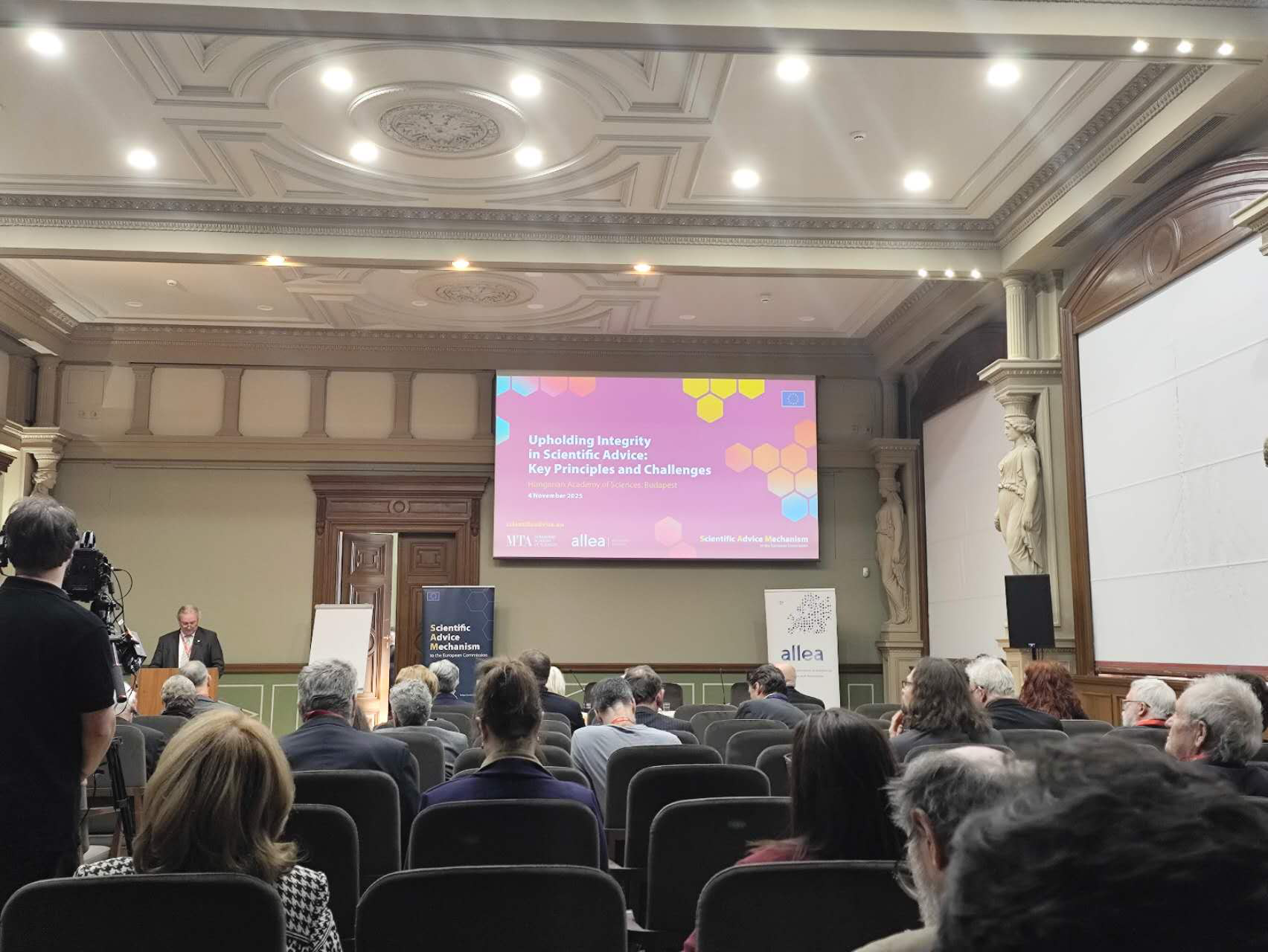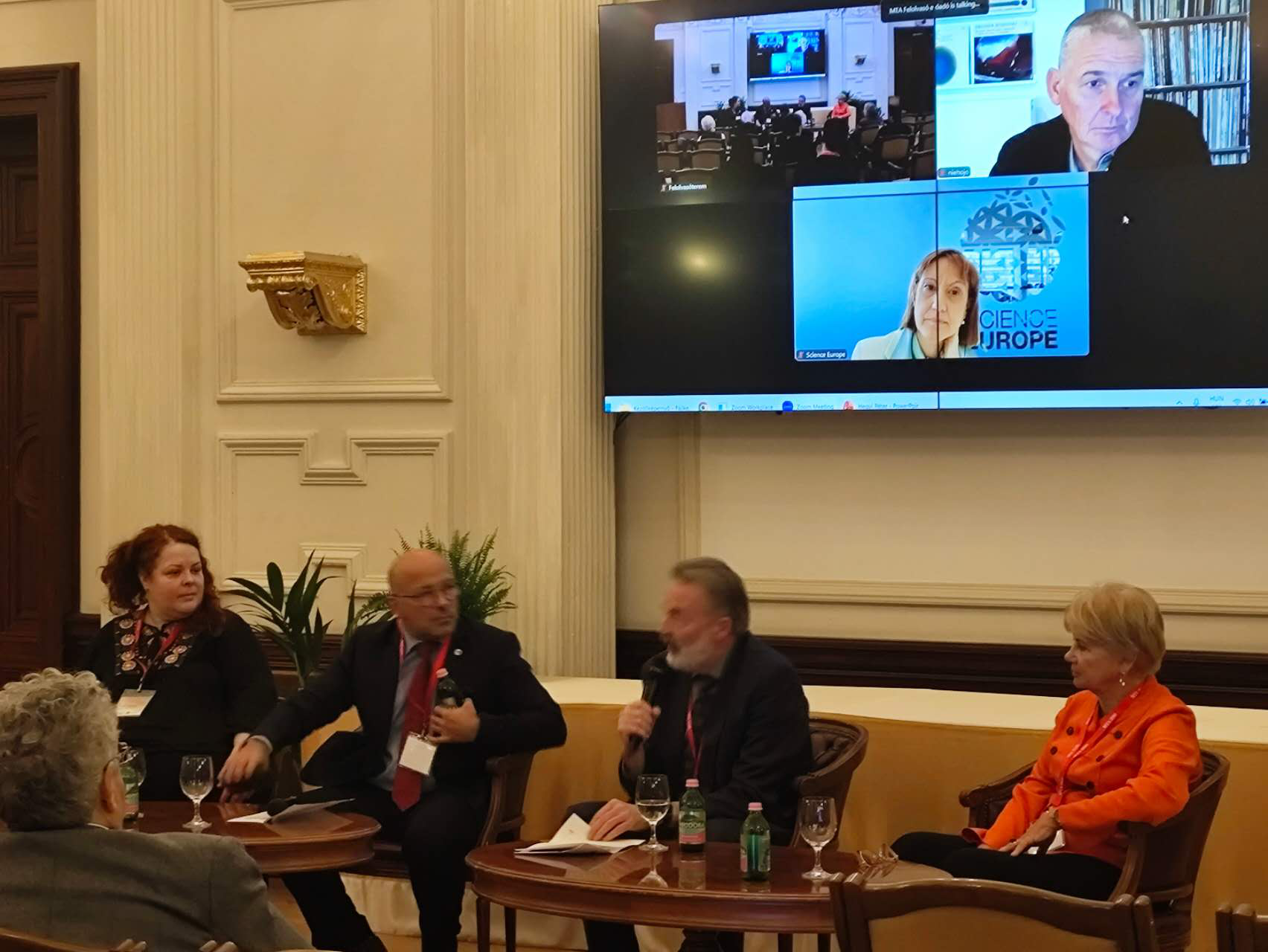From November 3 to 5, over 100 representatives from research institutions, international organizations, and international scientific networks worldwide gathered in Budapest, Hungary, to celebrate the 200th anniversary of the Hungarian Academy of Sciences (MTA). Dr. Yi Zhijun, Deputy Executive Director of the ANSO Secretariat, attended the event, witnessing the MTA’s 200-year legacy—highlighted by 10 Nobel Laureates—and its consistent demonstration of openness and innovation within the global scientific landscape.

Founded in 1825 through a donation by István Széchenyi, MTA has played a central role in advancing science and culture for two centuries, contributing significantly to both Hungarian and European civilization. Upholding its guiding principle of using science to serve society, MTA remains steadfast in its commitment to truth and social responsibility.

MTA’s Ceremonial Hall hosted an international conference themed “The Changing Role of Academies in the 21st Century,” focusing on the role of academies in national and global science policy, research integrity, and societal engagement. A dedicated panel discussion titled “Upholding Integrity in Scientific Advice: Key Principles and Challenges” was also held.

The celebrations included the official launch of the Hungarian Science Festival, a special exhibition titled “Sunshine After Rain—Treasures of the 200-Year-Old Academy,” public lectures, a young scientists forum, and cultural performances.
Dr. Yi attended the opening ceremony and the panel discussion, engaging in in-depth exchanges with representatives from MTA and other institutions. He commended the MTA’s longstanding efforts in promoting open science, fostering international scientific collaboration, and facilitating knowledge sharing, while emphasizing ANSO’s commitment to further strengthening its cooperation with MTA and other European academic institutions.
During the celebrations, MTA outlined a new strategic vision and announced several forward-looking initiatives, including recruiting talent and supporting young researchers; strengthening international scientific networks and interdisciplinary collaboration to build a more resilient research ecosystem in the European Union; promoting deeper integration between social and natural sciences—including the convergence of science and art, and the role of artificial intelligence (AI) in science policy-making; advocating new approaches to science-society integration; and upholding research integrity and academic independence while continuing to provide independent, science-based advice for public policy.
As a member of ANSO, MTA reaffirmed its role as one of Europe’s oldest academic institutions. The celebrations also sent a strong signal to the world about the importance of strengthening scientific cooperation. As its President Tamás Freund stated, “Our mission is to turn science into a language of hope, to ensure knowledge benefits everyone, and to let research serve society and the sustainable future of our planet.”